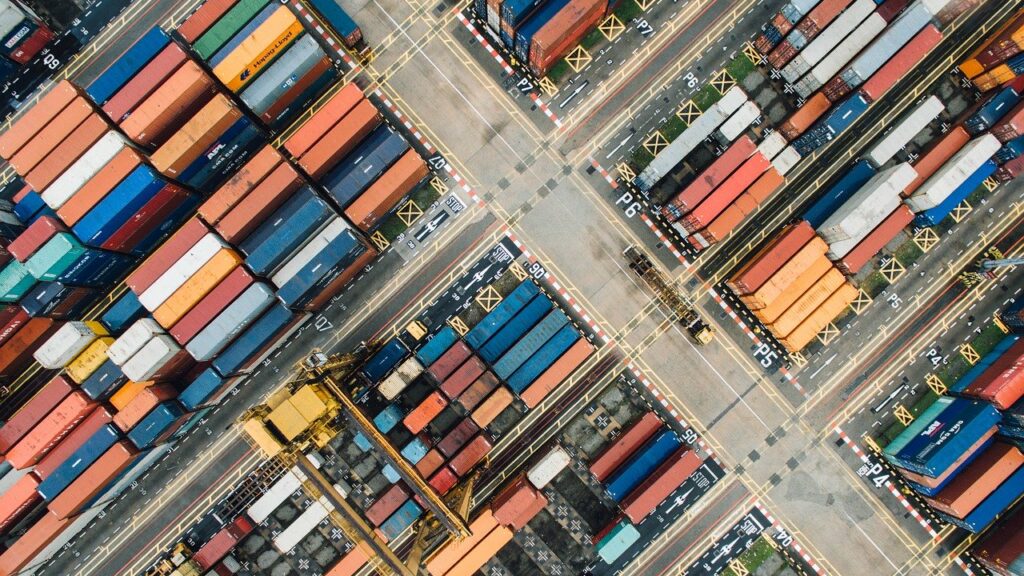
1. The Darkest Hour
We are living in challenging times, no doubt about that. The amount of effort we have to make as a society is unprecedented in recent history. The pandemic will pass, but we will have to find our feet in a new reality. It is surely not going to spare international trade.
Current events show more clearly than ever how strong economic interconnections between countries are in the modern, globalised world. A severe crisis in just one country can break supply chains around the whole globe, not even to mention financial consequences which, as we know at least since 2008, can spread just like a deadly virus.
We all know about a threat of recession. But the question is not only “what” is happening, it is also about “how” it is happening. How do the countries choose to deal with it internationally? Do we restrict trade in the face of such dangers? Or are we trying to liberalise it in order to keep the flow of goods? What about the export of deficit goods which may be used by countries to fight pandemic domestically?
2. Two approaches
To a surprise of its allies, the US allegedly seized 200,000 N95 masks which were to be shipped to Germany. 3M Company denied those allegations, but new ones were expressed by France and Canada. There are reports of either buying up respirators meant for those countries or diverting such goods back to the US under the Defence Production Act. Andreas Geisel, Berlin’s interior minister, called it an act of “modern piracy”. “This is not how you deal with transatlantic partners”, he added. In the meantime, President Trump confirmed that the US had taken custody of circa 200,000 N95 respirators, 130,000 surgical masks and 600,000 gloves needed “for domestic use”. It seems that the usual rules of international trade are no longer respected by some actors. It is a bit like we had an international state of emergency. The problem is that afterwards the US will have to deal with the loss of their closest partners’ trust. As Andreas Geisel stated: “Even in times of global crisis, there should be no wild-west methods”.
The EU has been criticised for its allegedly slow and not sufficient reaction to the pandemic. Without a doubt, some mistakes were made. Ursula von der Leyen, current President of the European Commission, even issued an apology to Italian people with the promise of more robust help. The problem is, however, that the Union does not in fact have the efficient tools to deal with such a crisis because sovereign member states did not arm it with them. Nevertheless, trade policy belongs to the EU’s exclusive competences, giving it more room in external action.
Neither the EU nor the member states decided to apply measures similar to those described earlier as “modern piracy”. For now, the European Commission announced that it is going to implement exemptions from customs duty and import VAT for “protective equipment, other relevant medical devices or equipment in the context of the COVID-19 outbreak”. A move which could be associated with trade liberalisation, not with protectionism – ultimately its goal is to boost import and to lessen its cost, not to divert freights by force.
3. How will the world look like?
Shortly: I do not know, neither do you. Incredibly soothing, right? But we can at least assess different possibilities. If the world, forced by necessity, takes the path represented by the US, that means war-like measures and a spike in protectionism. There is another way – of trade liberalisation with the aim of boosting economic cooperation. But the hour is dark, paraphrasing Churchill, and in the darkest hours countries go wild. As Thomas Hobbes, author of “Leviathan”, famously outlined: in absence of strong rules enforceable by a higher authority we are “in that condition which is called war; and such a war as is of every man against every man” [1]. That is truly an acid test of a capacity of the international community to follow the rules in a time of crisis.
But there is this “silver lining” which I generously promised at the beginning. It was after World War II when countries decided to finally liberalise international trade after hundreds of years of omnipresent protectionism. That is how the General Agreement on Tariffs and Trade, the forerunner of the WTO, was conceived.
That was a few decades ago, what do we have now? The Doha Round, the latest round of international trade negotiations, seems to endlessly float in a vacuum. The WTO’s Appellate Body cannot adjudicate blocked by the US. The US is in an open trade war with China and on a silent trade war with the EU. Maybe a shattering crisis is what we need to finally reform the system which has apparently become outdated. Short-term disruptions may lead to a long-term revolution which is so needed in international trade law.
###
Bibliography:
[1] T. Hobbes, Leviathan, ed. R. Hay, McMaster University Archive of the History of Economic Thought, p. 77.


